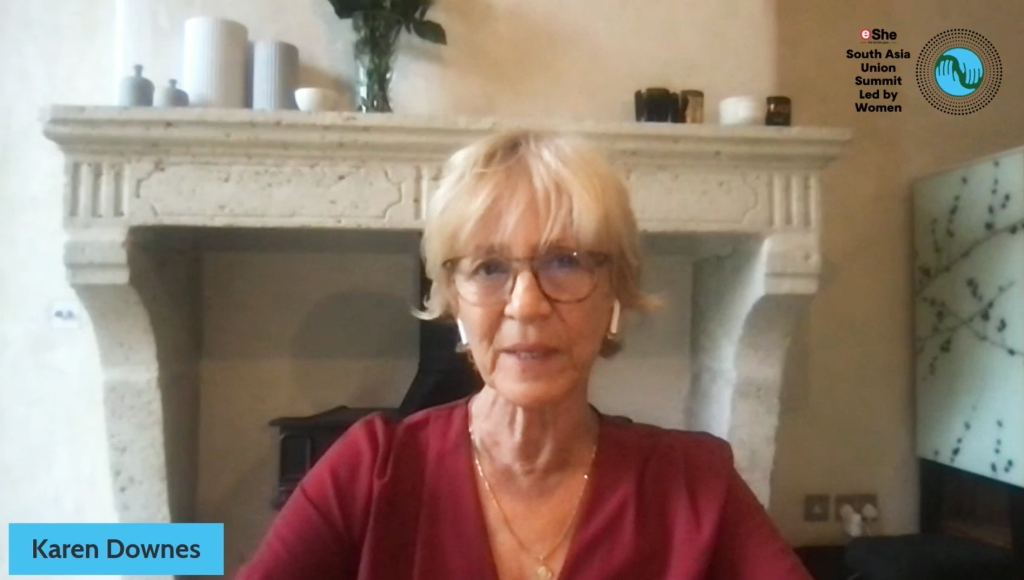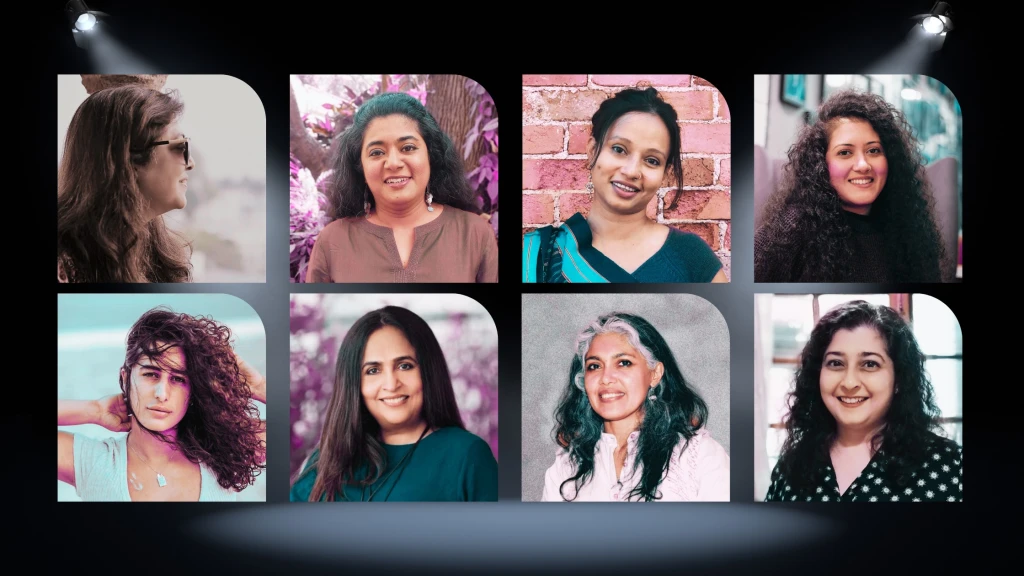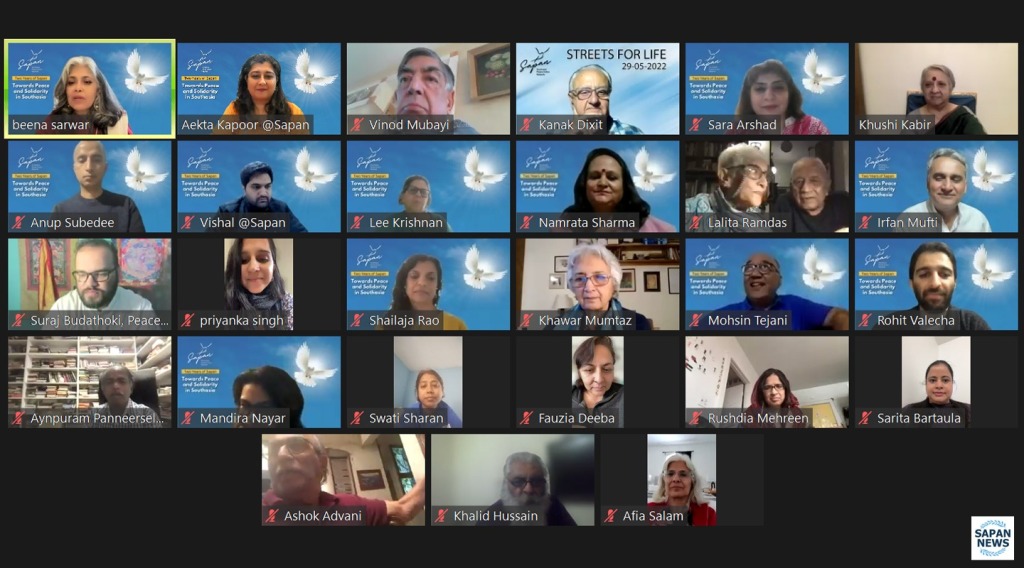By Pragya Narang
Karen Lee Downes, co-founder of FemmeQ and a changemaker shuttling between the UK, the USA and Costa Rica, had been constantly told growing up in the 1980s that if she used her head, her smarts and her intelligence, then she would succeed. So, when she left her high school without completing her final year and decided not to go into university, she wasn’t sure how she would survive in a world that has an endemic of university degrees.
Downes, who was interested in wellbeing, trained as an aerobics instructor. “From my very early days I started the inquiry and discovery of what intelligence is in our bodies and discovered through my training as an aerobics instructor that my body had wisdom. It knew what to do when I asked it to do something. So, I listened to my body and studied nutrition, aromatherapy, and a multitude of alternative healthcare practices,” says the woman who co-founded and built an $8.5 billion alternative healthcare enterprise in Australia using these practices and went on to support five international startups.
Speaking at eShe’s South Asia Union Summit Led by Women, Downes insisted that we need to find our voices, stand for what we believe in, stand up for who we are, and what we bring to the world. Her talk, ‘Feminine Intelligence as Embodied Leadership’, focused on respecting, including, and embodying feminine intelligence, which is accessible to all of us, to restore wholeness to our human psyche and integrity to our social, economic, ecological and political systems.
“Through many examples in the corporate world, I have seen that in order to succeed, women follow masculine tendencies of competition, being assertive, and operating from a scarcity model of money and opportunity rather than supporting one another,” mentioned Downes, a leadership consultant who has designed development programmes for global corporates such as Unilever, BP, Intel and Virgin Atlantic.
A serious road cyclist who competed in the World Masters, Karen has authored six books on wellbeing that have sold over half a million copies. “What put me ahead in these trainings in the physical world was my craving to understand the meaning and purpose of my life. I studied anthroposophy, which is the spiritual science that Rudolf Steiner brought into this world. So, my spiritual studies combined with my physical, emotional, and mental aptitudes became a resource for me, which helped me see far more than I could by just using my head, which I was told to do when I was young. I learnt about my body’s wisdom,” she shared.
Downes, who has supported civil-society organisations in India and Bangladesh through the Hunger Project to transform entrenched cultural norms, insists that this topic of feminine intelligence in embodied leadership is irrelevant in the context of villages of South Asian countries. “In impoverished circumstances, what we need to talk about is biology, gender, inequalities, and the policies and structures that need to be in place to bring about a more just and humane society. Feminine Intelligence is a privilege to talk about only when we are not under duress,” she further admitted.
The survival mode is antithetical to practising feminine intelligence. “Often when our bodies are in survival or reaction, we lose our feminine intelligence. In survival mode people’s nervous systems are highly activated and they lose their ability to navigate or have a compass that takes them through the world in a way that makes sense to them,” she explained.
Similarly, the pandemic has affected women disproportionately globally through home schooling, girls leaving school, and having to go back to their villages, and people losing jobs no matter what culture or country you live in. She described that when we have this experience of loss, over a long period of time, we can no longer make sense of the world. When we cannot be with people we love, we can lose our sense of belonging. There is a huge recognition of trauma during this time.
This is when we need to activate our feminine intelligence: “It is at such a time that we need to come back to our bodies and reconnect, because we need to be able to listen to something other than our head or our minds that often circulate negative conversations or voices in our head,” said Downes, who is also the founder of the Flourish Initiative where she brings her experience and hands-on expertise to transform outdated organisational systems into ones that enable human flourishing and business prosperity.
She started FemmeQ in 2015 to uphold this imputation that goes beyond emotional intelligence to find what the feminine holds in its biology. She explains, “For decades, we have undermined feminine intelligence, and the feminine understanding or relationship to our bodies. Science has now proven that your body, depending on the gender you are born into, has a certain consciousness to it.”
Due to our culture, biology and life’s experiences, we are oriented to receiving information and responding to circumstances in a particular way, especially if as children we haven’t had our needs met and seek them out as adults. Science has proven that the gut and the heart feed the brain with more information than the brain itself holds and that the brain is only the interpreter, Downes informs.
“So, we need to cultivate this feminine intelligence that comes from the body’s wisdom, listen to our body’s reactions that we have to life, and also to the experiences we have which are sometimes activated through trauma. If we can self-regulate our nervous system to understand that it was a trigger point or reaction to either a conflict, crisis, or humiliation, or a response to circumstances, through either breathing, silence, listening to our gut or intuition, or the rhythm of our heart, then we can feed it back to our brain.”
An international change catalyst committed to creating new paradigms of thinking and acting in four sectors of society using feminine intelligence, another aspect Downes studied in embodied leadership is the left and right hemispheres of the brain. “All the organs in our system are important in understanding the resources and facilities we have in our bodies. The left brain has access to language, is logical, rational, and transactional, we need it critically to get things done and what has been overplayed in the last few decades if not centuries, is the aspect of the left brain.”

Making a brief mention of psychiatrist Iain McGilchrist’s book The Master and His Emissary, she spoke out about this imbalance between the left brain which has become the master, and the right brain serving it, whereas it should be the other way round. “The right brain is far more connected and relational and imaginative. And we can only think in pictures or use our imagination in silence when we get connected to our bodies, and then we send over this information to our left brain to make sense of it and to decide what is important to us,” she stresses.
There is so much intellect and left brain in strategy, business KPIs, and performance measurements when the left brain is predominantly in conversation that we are not left with a moment to pause, reflect, and ask ourselves how we feel about a decision, and what are the impacts of this decision would be on my children, she rued.
“Feminine intelligence on the other hand thinks on the whole, on the wider impact in the family, community, and on now, the environment. By depriving ourselves of this silence, we are deprived of the future that is speaking to us. How can we listen to the future if we are so in conflict with the present moment and so overwhelmed with surviving the present circumstances, the crises, and the news we are constantly exposed to?” she questioned.
Karen runs a 12-virtues programme that she teaches online based on what she has learnt from her own everyday practice. This programme includes compassionate leadership, developing compassion for self and others, understanding devotion and ways to use devotion to commit to things that mean the most, amongst other values. Using these 12 virtues, which are qualities that one can embody when they are feeling the best of themselves, she puts forth a three-point system to implement the notion of embodied leadership.
The first step in implementation would be to develop self-awareness, and notice what one’s triggers and reactions are. The second would be to understand the difference between the right and left hemispheres of your brain and how one can develop the more creative sides of one’s brain which makes us reach out to art, poetry, music and dance. Finally, we need to realise what it takes to discipline ourselves to develop these qualities. “Science says we need to practice something 3000 times to become efficient in something, and 30000 to become masterful.”
ABOUT
South Asia Union Summit Led by Women is a nonprofit initiative by eShe, a digital platform based in New Delhi that amplifies women’s voices from South Asia and globally. Supported by WISCOMP, the virtual summit brought together 50 eminent women from 13 countries to discuss solutions for peace, gender equality, social justice and a unified South Asia.
The event page has the complete list of speakers and the sessions.
The full videos of the latest event can be viewed online: Facebook, YouTube






Leave a comment